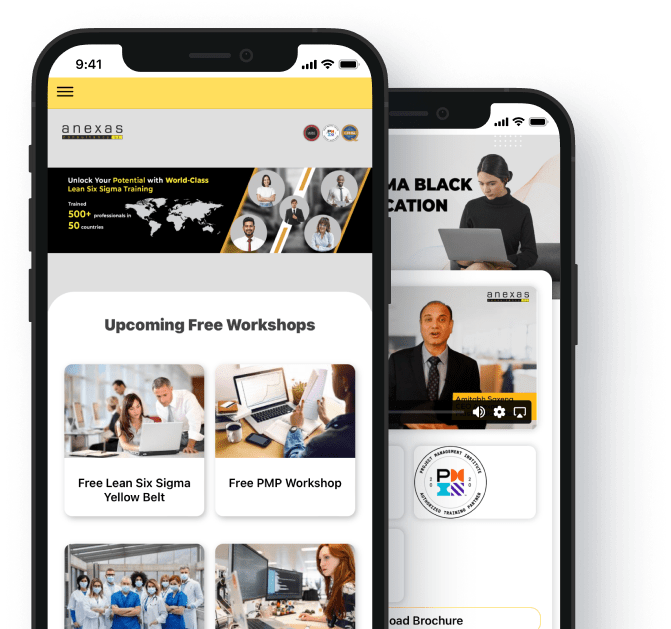Lean Six Sigma In Sales Industry
Who we are
Can Lean Six Sigma be applied to the sales industry? Of course Yes. To apply Lean Six Sigma in the sales domain, you need to start with minimizing defects and cutting out unnecessary steps by identifying what to measure. After this, you can assess and augment your team, and convert best practices to common practices.
Benefits of Lean Six Sigma
Lean Six Sigma enables the measurement of inputs and reporting of outputs for any process, including sales. In the sales industry, outputs refer to the achieved results or orders. Identifying the critical management inputs that serve as qualifying factors for opportunities in the sales pipeline is essential. These inputs encompass elements like discount rates, proposals, mutual plans, and access to key decision-makers. Once these factors are identified, effective management of these inputs is necessary to measure and report the actual business outcomes.
Sales managers must concentrate on reducing defects that can lead to increased costs. These defects include unproductive sales calls, counterproductive conversations, and opportunities that are not genuinely qualified. By consistently and rigorously qualifying prospects, it becomes possible to minimize variations in the sales pipeline and focus on the opportunities that are genuinely promising and qualified. This approach helps to eliminate the wastage of time and resources on no-decision opportunities, as these costs are irrecoverable and can negatively impact a sales organization.
A quality initiative entails incorporating best practices. The key to success in a sales process lies in transforming these best practices into common practices and adopting them as the guiding motto. The ultimate goal is to achieve predictable outcomes. Similar to how skilled chefs have their unique recipes to eliminate variation in their dishes, leaders within world-class sales organizations rely on a well-defined sales process to minimize variations in qualified prospecting. This focus on consistency enables them to optimize their revenue and margins.
A sales team operates much like a manufacturing organization. Sales can be seen as the manufacturing arm of a business, where customers are “manufactured” from the “raw materials” of leads and prospects. By leveraging Lean Six Sigma principles, you can ensure that your results meet expectations consistently. This involves managing crucial inputs to maximize result quality and overall productivity. Embracing this approach will lead to a successful and thriving sales process.
Lean Six Sigma in various industries
Other Related Courses

Lean Six Sigma Green Belt
Experience the true power of Lean Six Sigma Green Belt with Anexas!
4.7
(35,000)
(35,000+ students enrolled)

Lean Six Sigma Black Belt
Experience the true power of Lean Six Sigma Black Belt with Anexas!
4.7
(25,000)
(25,000+ students enrolled)

Lean Six Sigma Master Black Belt
Experience the true power of Lean Six Sigma Master Black Belt with Anexas!
4.7
(30,000)
(25,000+ students enrolled)

PMP Certification Course
Experience the true power of PMP Course with Anexas!
4.7
(25,000)
(25,000+ students enrolled)

CPHQ Certification Course
Experience the true power of CPHQ Course with Anexas!
4.7
(25,000)
(25,000+ students enrolled)
Power BI Certification Course
Experience the true power of Power BI Course with Anexas!
4.7
(15,000)
(15,000+ students enrolled)






